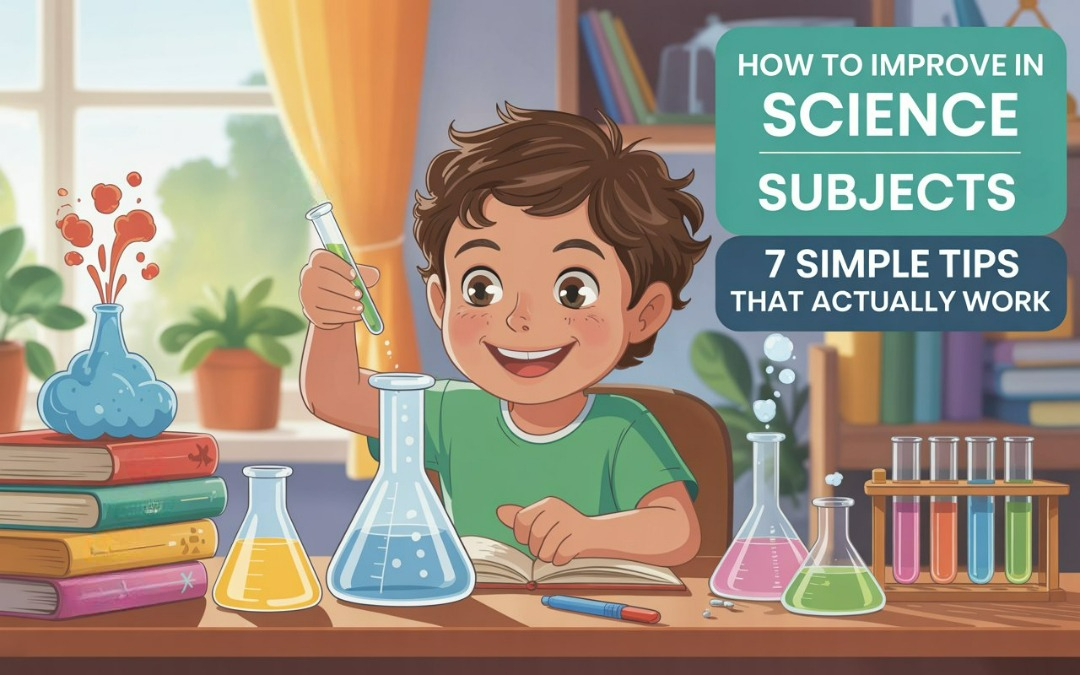How to Improve in Science Subjects: 7 Simple Tips That Actually Work




Science can seem tough, but it doesn’t have to be! Many students struggle with science subjects not because they’re difficult, but because they don’t approach them the right way. Whether it’s physics, chemistry, or biology, science becomes easier when we understand it not just memorize it.
In this article, we’ll share 7 simple tips on how to improve in science, practical tools for learning.
Memorizing facts may work for a short time, but real success comes from understanding.
Resource Type | Benefits |
| Worksheets | Step-by-step learning and review |
| Previous Year Papers | Understand exam style and pattern |
| MCQs and Quizzes | Practice speed and accuracy |
Worksheets help reinforce what’s learned and identify gaps.
Age Group | Best Learning Method |
| 6–8 years | Fun facts, simple experiments, storytelling |
| 9–11 years | Diagrams, games, concept videos |
| 12–14 years | Worksheets, visual learning, concept maps |
| 15+ years | Revision sheets, mock tests, problem solving |
Science is not just about marks, it’s about curiosity, logic, and understanding the world around us. With these 7 simple tips and regular effort, any student can improve in science. Start small, stay consistent, and enjoy the learning journey.
At Interval Learning, we support every child’s journey in science with expert-led online classes, personalized guidance, and easy-to-understand resources—helping them build confidence one concept at a time. Join Interval Learning’s Online Academic Tuition!
Yes! With the right approach and regular practice, any student can improve.
Use real-life examples, simple experiments, and ask questions like “Why does this happen?”
Use flashcards, apply formulas in questions, and revise regularly.
30–45 minutes daily is enough for steady improvement.